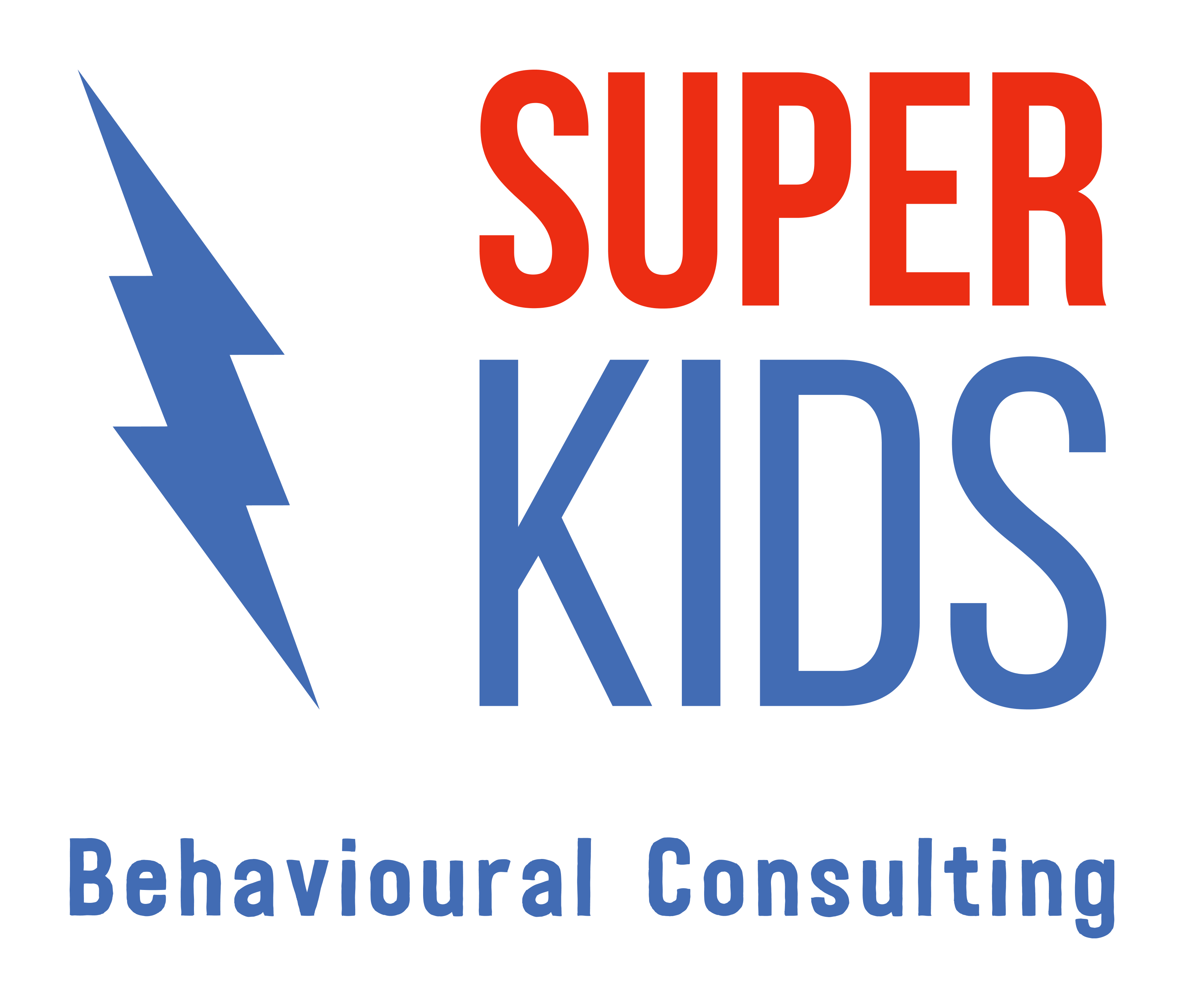ABA vs Psychology

Emily O'Hanna
REGISTERED PSYCHOLOGIST (She/Her)

Psychology vs. Applied Behaviour Analysis (ABA) for Children and Teens: What’s the Difference?
When it comes to supporting children and teens with neurodivergence or behavioural challenges, two commonly considered services are psychology and Applied Behaviour Analysis (ABA). Both services are effective and evidence-based, yet they focus on different aspects of development. Understanding these distinctions and how the two can complement each other can help you make the best choice for your child’s unique needs.
At Super Kids, we provide both compassionate, evidence-based psychological care and ABA services. In this blog, we’ll compare psychology services and ABA, explore similarities and differences, and discuss which approach may be more suitable for your child or teen.
What Does Psychology for Children and Teens Involve?
Psychology services for children and teens focus on both observable behaviours and the internal world, the thoughts, emotions, beliefs, self-concepts, and relationships that shape a child’s experience. Unlike ABA, which centres on behaviour change, psychology also addresses the internal processes behind behaviour.
Psychological therapy aims to:
Help children develop a deeper understanding of themselves and the world.
Build emotional regulation skills and coping strategies.
Support relationships, attachment, identity, values, and self-confidence.
Importantly, psychology provides a safe space for children to share their experiences in a non-judgmental, empathetic environment. This helps them talk about their feelings without fear of criticism, and in turn, builds trust and self-awareness.
Key Areas of Focus in Psychology
Emotional regulation: Managing intense feelings such as anger, sadness, or anxiety.
Coping skills: Strategies to navigate social situations and daily challenges.
Self-confidence: Building belief in their strengths and abilities.
Identity exploration: Exploring thoughts and sense of self, including understanding neurodiverse strengths.
Empathy and understanding: Feeling heard, valued, and supported.
Relationships and attachment: Developing strong, healthy bonds with caregivers and peers.
Social skills: Enhancing communication and peer connection.
Parent support: Helping parents manage behaviour, reduce burnout, and strengthen secure attachments.
Who Might Benefit Most from Psychology?
Psychology can be particularly well-suited for school-age children with developing cognitive abilities who can reflect on their feelings. However, there’s no strict age rule—psychology can be tailored to many different needs.
One of the unique benefits of psychology is the support it offers parents. Research shows that when parents of neurodivergent children receive therapeutic support, it leads to improvements for both the child and the entire family system. As a result, parents report feeling less stressed and more capable of managing challenges.
How Does This Compare with ABA?
ABA takes a structured, data-driven approach that focuses on changing observable behaviour. ABA therapists:
Encourage helpful and adaptive behaviours.
Reduce behaviours that may be challenging or unsafe.
Teach new skills using techniques such as reinforcement, prompting, and repeated practice.
In short, psychology looks inward to thoughts and emotions, whereas ABA looks outward at behaviour. Yet both can complement one another, offering holistic support.
Below is a comparison table to help clarify the differences between psychology and ABA services for children and teens.
Key Differences Between Psychology and ABA Services
Psychology | ABA (Applied Behaviour Analysis) | |
Focus | Internal emotional and cognitive processes, relationships and attachment, social skills, values, identity, and self-confidence | External behaviours and skill development |
Goal | Helping children understand themselves, manage emotions, and develop healthy coping strategies | Modifying or reducing behaviours of concern and teaching new skills |
Methods | ‘Talk therapy’ that encompasses activities, reflection, and practice of coping skills, using evidence approaches such as ACT and CBT | Behavioural techniques such as reinforcement, prompting, and shaping, using session-by-session data to track skill progression |
Duration of Sessions | Typically 50 minutes per session, weekly or fortnightly | Varies, often 2 to 2.5 hour sessions multiple times per week depending on needs |
Target Population | Children and teens with emotional regulation difficulties, social struggles, or mental health concerns | Children with behavioural challenges and may need support learning communication or independence skills |
Best For | Exploring feelings, improving self-awareness, emotional regulation, treatment for anxiety and other mental health concerns | Teaching new behaviours, improving communication, and reducing challenging behaviours |
Parent Support | Strong focus on parent support and mental health, helping parents manage stress, anxiety, burnout, and learn effective strategies | Some parent training, but more focused on behaviour management and teaching skills |
When to Choose Psychology vs. ABA
When Psychology May Be More Suitable
Psychology services may be the right fit if:
Your child struggles with emotional regulation (anxiety, anger, frustration).
They need help understanding and communicating emotions effectively.
You want to build their self-advocacy and self-confidence.
You’re looking for a holistic approach that addresses challenges like social anxiety or low self-esteem.
Your child is exploring their identity and needs a safe space for expression.
Their challenging behaviours may be linked to emotional difficulties, thinking patterns, or trauma history that require therapeutic insight.
You want parent-focused support to reduce stress, build resilience, and better understand your child’s psychological needs.
When ABA May Be More Suitable
ABA services may be the best option if:
Your child needs support learning specific behaviours or skills (e.g., communication, self-care, social interaction).
They are engaging in challenging behaviours that disrupt daily life and need structured interventions.
You want to focus on teaching functional skills, such as following instructions and building independence.
How Psychology and ABA Can Work Together
Although psychology and ABA emphasise different aspects of development, they often complement one another. For instance:
ABA can teach behavioural skills and reduce challenging behaviours, while psychology can help children understand the emotions behind those behaviours and develop coping strategies.
Psychology can address emotional and social struggles, whereas ABA provides structured opportunities to practise social and communication skills.
In many cases, children benefit from both approaches—using ABA for skill development and psychology for emotional regulation and self-awareness.
How We Manage This at Super Kids
At Super Kids, we recognise that no two children are the same. That’s why we offer both ABA and psychology services under one roof and tailor our recommendations based on your child’s unique needs.
Our Behaviour Analysts focus on structured, evidence-based teaching to build functional skills, reduce challenging behaviours, and create opportunities for success.
Our Psychologists provide emotional support, therapeutic interventions, and strategies to help children and families navigate the inner world of thoughts and feelings.
Together, we collaborate, sharing insights and working closely with parents, so that children benefit from a holistic plan that addresses both behavioural and emotional needs.
This integrated approach means your child doesn’t have to fit into a single “box.” Instead, we meet them where they are, providing flexible, compassionate care that grows with them and your family.
Making the Right Decision for Your Child
Ultimately, choosing between psychology and ABA depends on your child’s unique needs.
If emotional regulation, mental health, social issues, or self-esteem are the biggest concerns, psychology may be the most beneficial.
However, if behavioural challenges are the priority or if your child is younger and still developing cognitive skills, ABA can provide a more targeted approach.
Both psychology and ABA offer valuable, evidence-based support for neurodivergent children and teens. At Super Kids, we believe families shouldn’t have to choose one or the other when both can work in harmony.
Next Steps for Parents
If you’d like to learn more about how psychology and ABA can support your child, or if you’d like guidance in choosing the right approach, reach out to us at Super Kids. We’d be glad to discuss your options or help you book your first appointment.
Super Kids acknowledges each individual’s personal preference to use identity-first or person-first language to describe themselves or their loved one. We interchangeably use both language conventions and therefore refer to both Autistic children and children with Autism.





